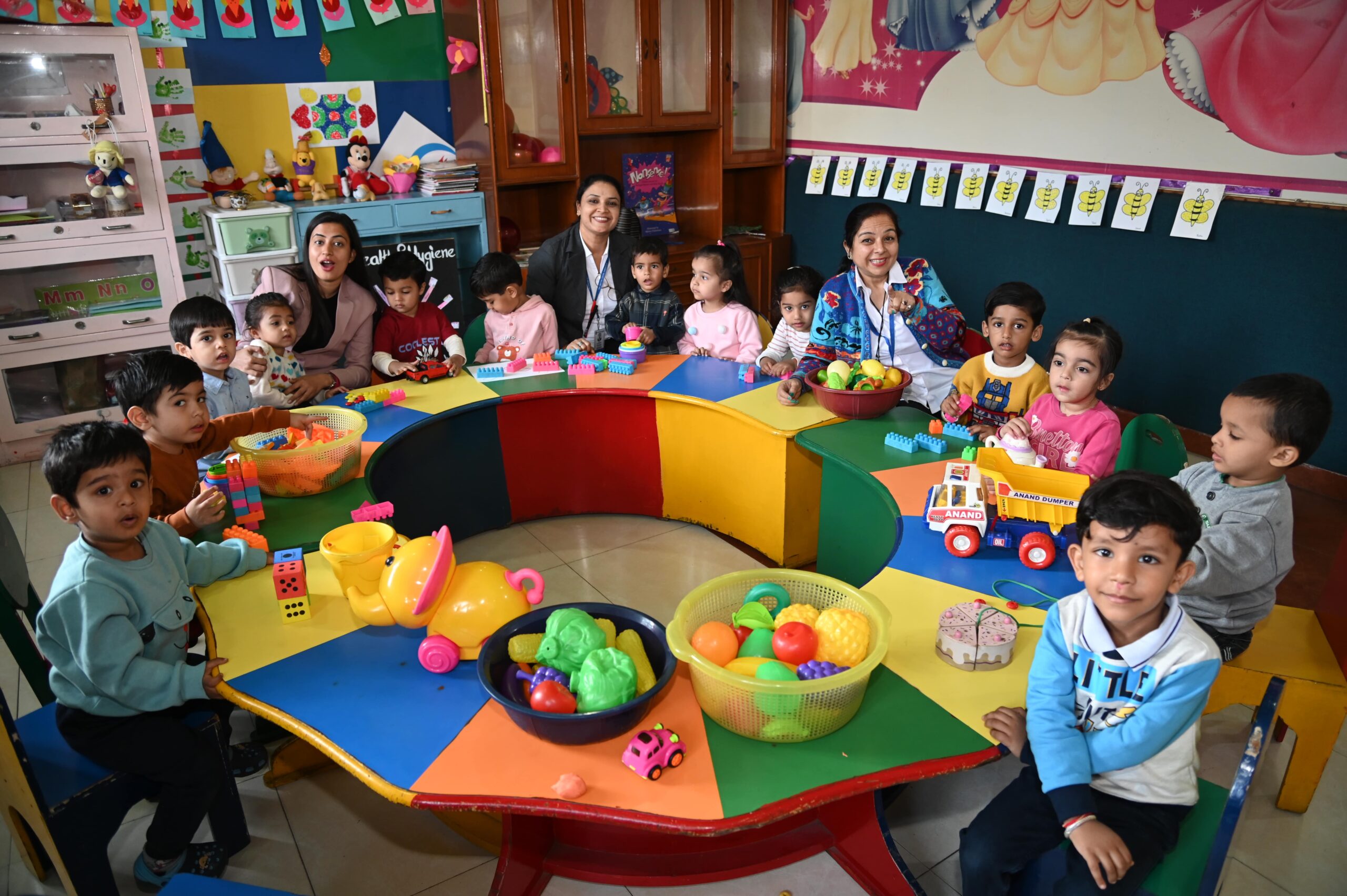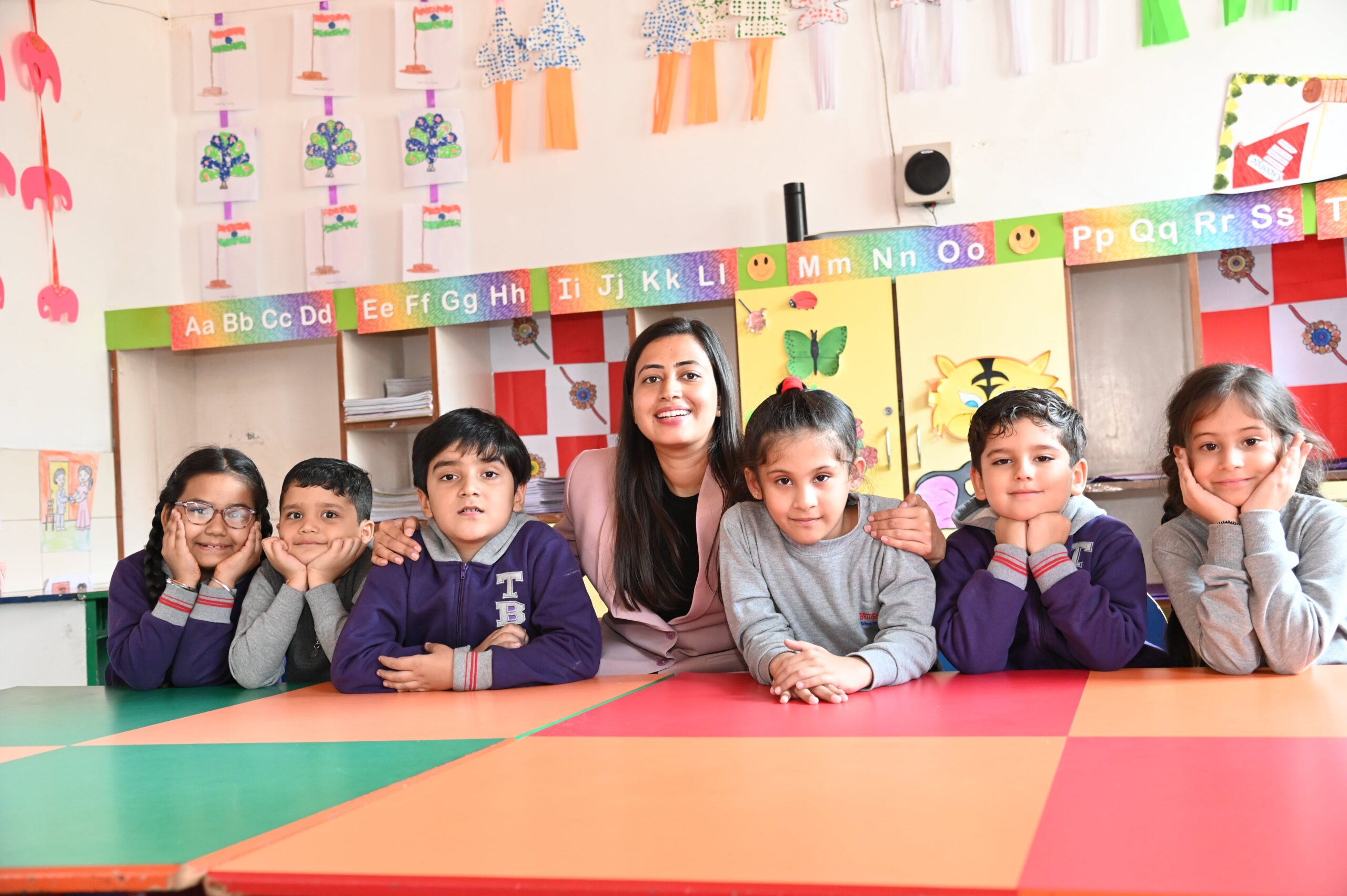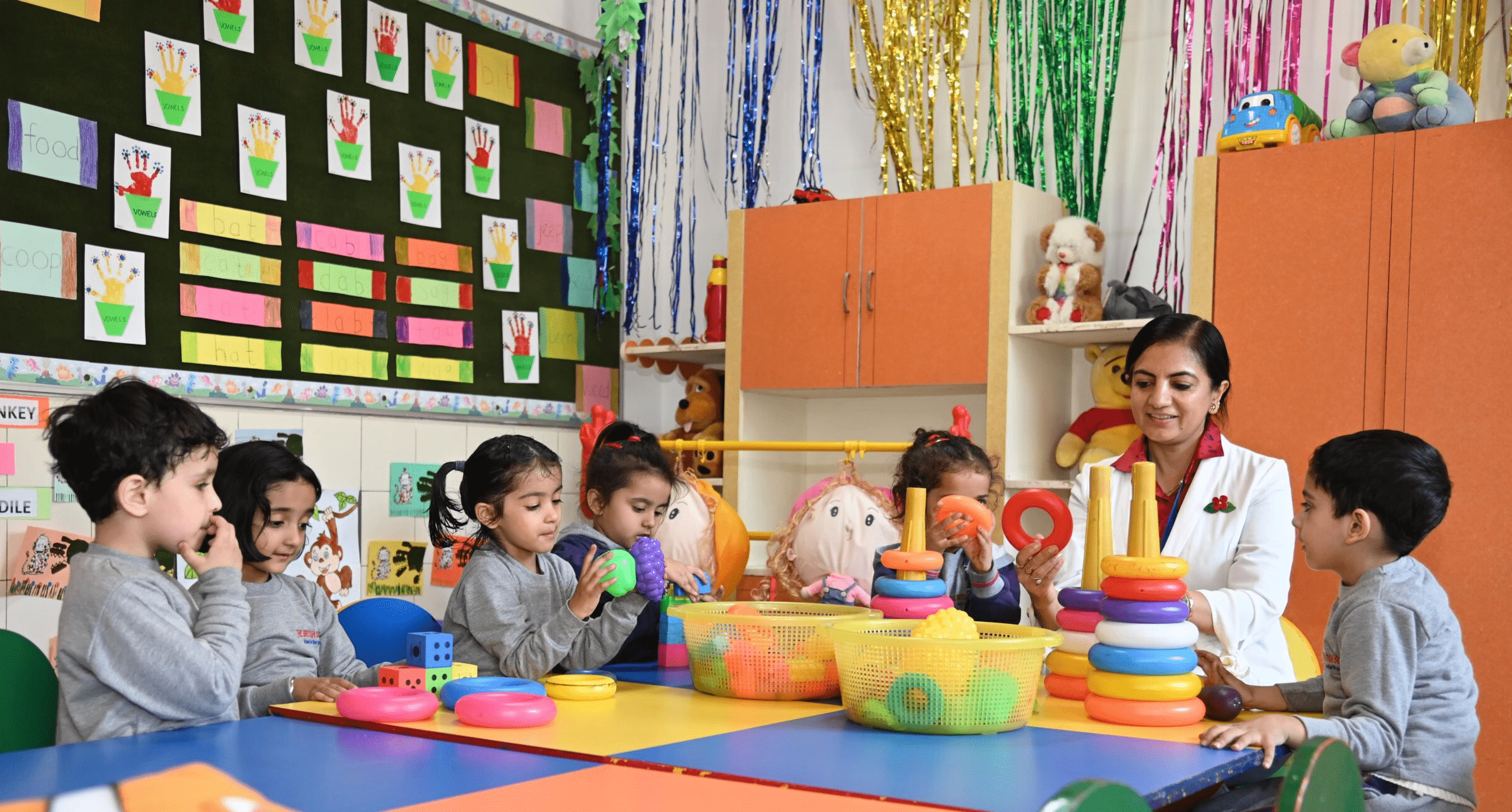Tinkerbelle Kindergarten & Preschool in Panchkula is one of the top rated Pre Schools for Nursery, LKG, UKG. With top-notch experience in the preschool industry providing high quality education for Kids since 2005.
At Tinkerbelle, the junior branch of The Bharat School (proposed) currently known as The British School, we hold an unwavering commitment to the highest standards of education.
With meticulous attention to each student, we ensure a personalized learning experience that nurtures their academic and personal growth.
Tinkerbelle comprises of pre-primary sections. We stand as a testament to our dedication to cultivating young minds with utmost care and fostering creativity.
Tinkerbelle – Playway, Preschool & Kindergarten School in Panchkula

Each day is structured to include a combination of teacher led activities working with small groups of students, independent directed activities and child initiated learning.
Activities are play-based, and children are encouraged to understand and enjoy the learning process at the best preschool in Panchkula. Some activities take place in the classroom and for other activities children visit other areas of the school such as the atrium for story telling or reading, the music room for singing, the hall for dance, aerobics, stage play and more.




Giving our students exposure to the real world.
Pushing child’s creative thoughts and broadening their thinking horizons.
Interactive activities that make children socially confident.
Mindful activities to bring the best out of our child’s mind.



(Nursery)

(LKG)

(UKG)
The classrooms at Tinkerbelle Preschool are warm and inviting places where children inquire, learn and frolic together. Colourful furniture, charts and displays ignite the children’s natural curiosity and inquisitiveness. The vibrant selection of toy and play equipment encourages active, explorative play and sustained peer interactions.
The learning centres, props, books and other materials promote discovery and experiential learning. The rooms are equipped with interactive smart boards that allow children to learn more effectively through immersive audio-visual content, making it the best preschool in Panchkula for a modern learning experience.





I believe children come into this world as capable beings. They possess voices ready to share and ideas of adventures yet to be explored. At TinkerBelle School, children get an opportunity to make sense of their environments while developing a deeper sense of self: self-awareness, self-efficacy, self-reliance and self-reflection. Our inquiry-based curriculum caters to each individual child and nurtures their infinite strengths and competencies.










 iOTA - A Creative Agency
iOTA - A Creative Agency 
